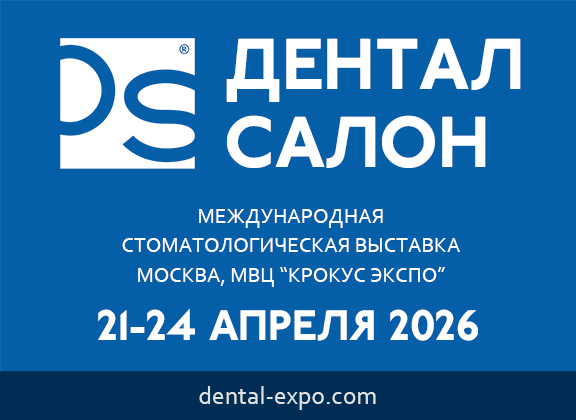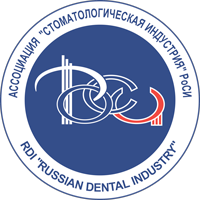DOI:
10.37988/1811-153X_2024_4_89Effect of alkaline disinfectants on microbial adhesion and anticorrosion properties of stainless steel medical instruments with cermet coatings
Downloads
Abstract
The development of modern technologies for disinfection and sterilization of medical instruments is an extremely urgent task, which is determined by the aggressive effects of the physical and chemical agents used. In recent years, titanium nitride-based protective coatings have been used to increase the life of medical instruments, which significantly increase the cost of the product compared to uncoated counterparts. The purpose of the study is to compare the corrosion resistance of samples with protective coatings under the influence of alkaline disinfectants, taking into account the assessment of the use of the original microbial adhesion technique and confocal electron microscopy in an in vitro experiment.Materials and methods.
Options for forming optimal cermet coatings of TiC-NiCr-based corrosion-resistant disinfectants using the electrospark ligation method for dental instrument samples were investigated. Have been used alkaline disinfectants “Wendelin”, “Megadez Orto”, “Trilox” of domestic production were used. To control the effect of disinfectants before and after exposure, a standard microbial adhesion study was performed with strains of S. aureus, B. cereus, C. albicans, C. glabrata. Surface roughness and topography were evaluated by scanning electron microscopy.
Results.
It was found that the formed protective coatings are not subject to corrosion when exposed to the studied ET solutions at room temperature. In contrast, the control samples (uncoated) showed an increase in microbial adhesion and signs indicating degradation and corrosion dependent on the concentration of ET. Optimal results for the microbial adhesion of S. aureus and C. albicans were obtained with sample 3 (Ra=3.26 μm), and on the contrary, the worst results were obtained with sample 4, which had the most significant thickness (40 μm) and the degree of roughness of the coating (Ra=3.73 μm).
Conclusion.
Protective coatings made of solid solutions based on iron: Fe241Ti9, Fe47C3, Cr-Ni-Fe-C and the strengthening phase of titanium carbide TiC on the surface of samples ensure their corrosion resistance when exposed to working solutions of alkaline ET, and when using ET “Trilox” also with concentrate.
Key words:
disinfectants, microbial adhesion, corrosion, medical instruments, cermet coatings, scanning electron microscopyFor Citation
[1]
Deshev A.V., Mustafayev M.Sh., Gvetadze R.Sh., Tsareva T.V., Antipov M.S., Bazhin P.M., Arutyunov S.D. Effect of alkaline disinfectants on microbial adhesion and anticorrosion properties of stainless steel medical instruments with cermet coatings. Clinical Dentistry (Russia). 2024; 27 (4): 89—97. DOI: 10.37988/1811-153X_2024_4_89
References
- Arutyunov S.D., Yanushevich O.O., Korsunsky A.M., Podporin M.S., Salimon I.A., Romanenko I.I., Tsarev V.N. Comparative analysis of the effectiveness of modern methods of sterilization of instruments and the place of gas-dynamic treatment with carbon dioxide. Russian Stomatology. 2022; 1: 12—19 (In Russian). eLIBRARY ID: 48470527
- Laneve E., Raddato B., Dioguardi M., Di Gioia G., Troiano G., Lo Muzio L. Sterilisation in dentistry: A review of the literature. Int J Dent. 2019; 2019: 6507286. PMID: 30774663
- Salimon A.I., Statnik E.S., Kan Yu., Yanushevich O.O., Tsarev V.N., Podporin M.S., Arutyunov S.D., Skripnichenko P.Yu., Galstyan M.S., Korsunsky A.M. Comparative study of biomaterial surface modification due to subcritical CO2 and autoclave disinfection treatment. The Journal of Supercritical Fluids. 2022; 191: 105789. DOI: 10.1016/j.supflu.2022.105789
- Porfiriev B.N., Shirov A.A., Yanushevich O.O., Grachev D.I., Polzikov D.A., Zolotnitskii I.V., Arutyunov S.D. Development of subsidized prosthodontic care: Socio-economic problems and opportunities. Studies on Russian Economic Development. 2023; 34 (1): 68—76. DOI: 10.1134/S1075700723010161
- Tsarev V.N., Akavov A.N., Karpova V.M., Tsareva E.V., Lastochkin A.A. Experimental microbiological justification of disinfection measures as a component of infectious safety in the practice of an orthopedic dentist. Clinical Dentistry (Russia). 2023; 3: 125—133 (In Russian). eLIBRARY ID: 54509017
- Xu Y., Huang Z., Corner G. A study of the effect of clinical washing decontamination process on corrosion resistance of martensitic stainless steel 420. Biomed Mater Eng. 2016; 27 (4): 341—351. PMID: 27689568
- Bazhin P.M., Kostitsyna E.V., Stolin A.M., Bychkova M.Y., Pazniak A., Chizhikov A.M. Nanostructured ceramic composite rods: Synthesis, properties and application. Ceramics International. 2019; 7: 9297—9301. DOI: 10.1016/j.ceramint.2019.01.188
- Antipov M.S., Bazhin P.M., Konstantinov A.S., Chizhikov A.P., Zhidovich A.O., Stolin A.M. Structure, mechanical and tribological properties of Ti-Cr-C-Ni-Fe composite coatings. Physical Mesomechanics. 2023; 6: 691—700. DOI: 10.1134/s1029959923060085
- Panteleenko F.I., Sarantsev V.V., Stolin A.M., Bazhin P.M., Azarenko E.L. Creation the composite coating on basis of titanium carbide by electrospark alloying. Surface Engineering and Applied Electrochemistry. 2011; 47 (4): 328—337. DOI: 10.3103/S1068375511040107
- Tsarev V.N., Stepanov A.G., Ippolitov E.V., Podporin M.S., Tsareva T.V. Control of primary adhesion of microorganisms and formation of biofilms on stomatological materials used for transdental implantation in dental stabilizing operations. Russian Clinical Laboratory Diagnostics. 2018; 9: 568—573 (In Russian). eLIBRARY ID: 36510269
- Bolotskaia A., Avdeeva V., Bazhin P., Mikheev M., Stolin A., Novikov V., Kovaleva M., Sirota V. Coatings prepared by electro-spark alloying with SHS electrode materials based on Ti-B-Fe-AlN. Coatings. 2023; 7: 1264. DOI: 10.3390/coatings13071264
- Arutyunov A.S., Tsareva T.V., Kirakosyan L.G., Levchenko I.M. Features and significance of adhesion of bacteria and fungi of the oral cavity as the initial stage of the formation of a microbial biofilm on dental polymer materials. Stomatology. 2020; 2: 79—84 (In Russian). eLIBRARY ID: 42851810
- Arutyunov S., Kirakosyan L., Kharakh Y., Dubova L., Malginov N., Akhmedov G., Tsarev V. Microbial adhesion to dental polymers for conventional, computer-aided subtractive and additive manufacturing: A comparative in vitro study. Journal of Functional Biomaterials. 2022; 2: 42. DOI: 10.3390/jfb13020042
- Bazhin P., Chizhikov A., Stolin A., Antipov M., Konstantinov A. Long-sized rods of Al2O3–SiC–TiB2 ceramic composite material obtained by SHS-extrusion: Microstructure, X-ray analysis and properties. Ceramics International. 2021; 20: 28444—28448. DOI: 10.1016/j.ceramint.2021.06.262
Downloads
Received
August 7, 2024
Accepted
October 20, 2024
Published on
December 17, 2024










